How to Play Like DADGAD Pioneer Davey Graham
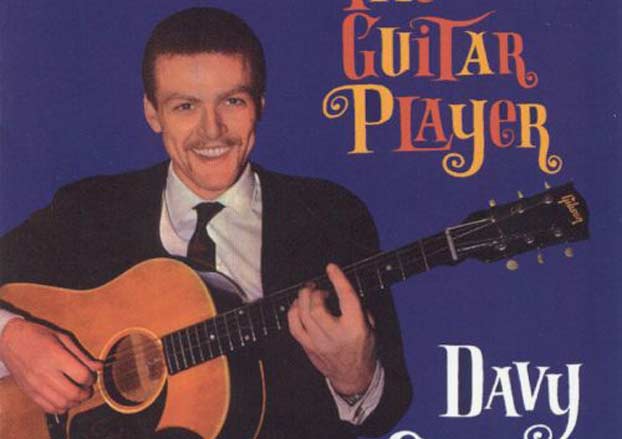
A key figure of the early Sixties British folk revival, Davey Graham (1940–2008) was a unique steel-string–wielding hybrid; Celtic music, jazz, blues and Indian classical influences played equal roles in his innovative style. (A short list of Graham’s “player” inspirations includes bluesmen Big Bill Broonzy, Blind Lemon Jefferson and Muddy Waters, plus jazz giants Charlie Parker, Charlie Mingus and Thelonious Monk.)
Although he never obtained mass “commercial” appeal, Graham (who also was known as "Davy" Graham) was a legend among musicians—a profound influence on pickers like Nick Drake, Bert Jansch, John Renbourn, Paul Simon, John Martyn, Richard Thompson and Jimmy Page—and recorded all the way up to the end, his final release, Broken Biscuits, issued in 2007.
To top it all off, he’s also deemed “the founder of DADGAD tuning!”
Let’s delve into this man’s facile fingerpicking style. Graham penned his most famous composition, “Anji,” when he was 19, first issuing it on his 1962 EP 3/4 AD. Played in the “fingering key” of A minor (Capo III makes it sound in C minor), Graham’s mix of fingerpicked chords and second-string grace notes (notes hammered-on so quickly that they have no acknowledged rhythmic value), like those in FIGURE 1, raised the eyebrows of future London-based guitar stars Bert Jansch, John Renbourn and Paul Simon (who had moved to London in 1964), all of whom covered this classic tune.
This uptempo, minor key instrumental also had “bluesy” appeal, featuring Graham “soloing with himself,” picking bluesy licks on higher strings while thumping open bass notes, as in FIGURE 2.
For his full-length debut, the aptly titled The Guitar Player (1963), Graham added drums to the mix (and no other instruments, decades before Jack White would do the same), the duo reworked an eclectic mix of jazz standards (Paul Desmond’s “Take Five,” and tunes by Cannonball Adderly and Horace Silver) and vocal classics (“Cry Me a River” and Ray Charles’ “Hallelujah, I Love Her So”) into folk instrumentals.
The lone original on the LP’s first pressing, “Blues for Betty,” is a mesh of bluesy chord stabs, bass-line riffs, and open-position licks, akin to FIGURE 3. Graham’s development of DADGAD Tuning purportedly occurred while traveling in Morocco, inspired by that region’s oud players (an 11–string fretless guitar-like instrument, usually tuned in perfect fourths); he often improvised with Indian Classical elements, using exotic sitar-like scales and rhythms (years before rockers George Harrison and the Beatles did so) in DADGAD tuning.
“She Moved Through the Fair,” Graham’s adventurous take on the traditional Irish folk song (from his 1963 EP From a London Hootenanny, later included as a Folk, Blues & Beyond bonus track) demonstrates this, as does “She Moved Thru' the Bizarre/Blue Raga” (recorded live in 1967, a bonus track in reissues of The Guitar Player)—two Graham jams which clearly impacted Jimmy Page (check out “White Summer,” “Over the Hills and Far Away”).
FIGURE 4 presents a composite of these cuts, their D Mixolydian (D E F# G A B C) lines intermingling with DADGAD’s open strings and Graham’s groovy picking to powerful effect. Thanks to Davey, DADGAD tuning is common today in folk and other styles too.
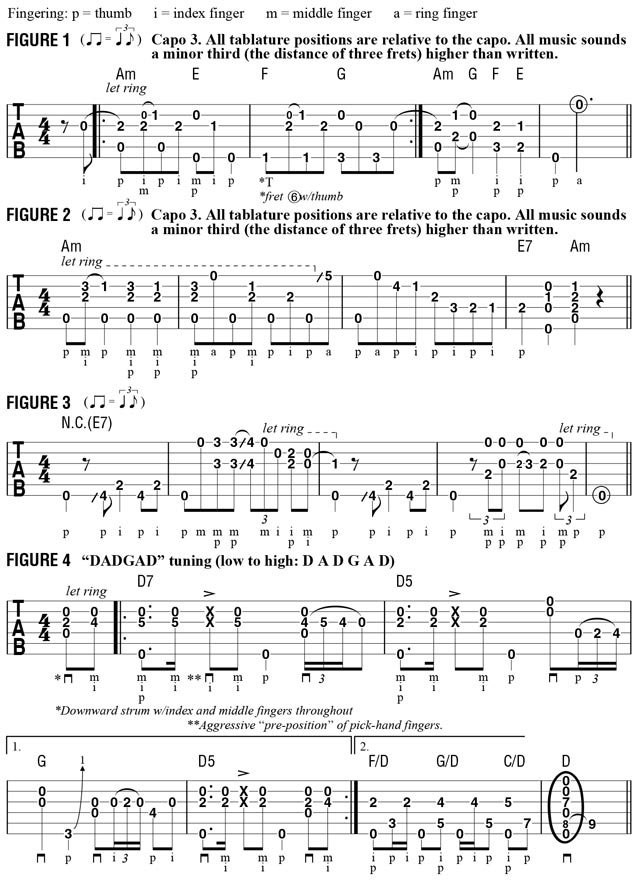
Get The Pick Newsletter
All the latest guitar news, interviews, lessons, reviews, deals and more, direct to your inbox!
A singer-songwriter/multi-instrumentalist/film composer, Musician's Institute instructor, and author of 50+ transcription/instructional books, Dale Turner is also Guitar World's "Hole Notes"/"Acoustic Nation" columnist, and the former West Coast Editor of Guitar One magazine. Some of Dale’s old, weird, rare, and/or exotic instruments are featured in his score for WEEDS, the first animated short completed within the Filmmakers Co-op at Disney Feature Animation. His most recent CD, Mannerisms Magnified, was praised by Guitar Player magazine for its "Smart pop tunes that are crammed with interesting guitar parts and tones ... Like what the Beach Boys might do if they were on an acid trip that was on the verge of getting out of control. Yeah!"
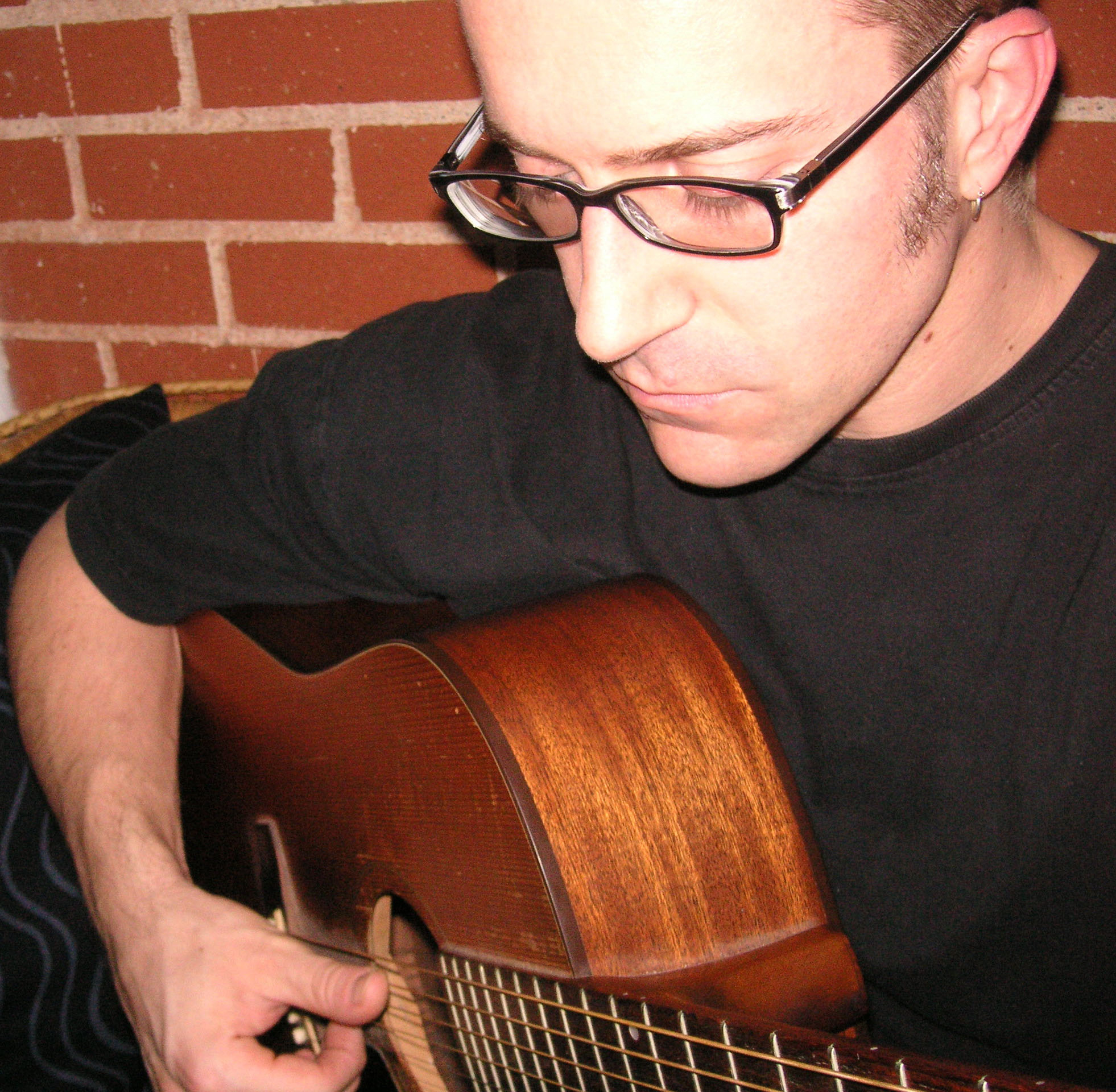
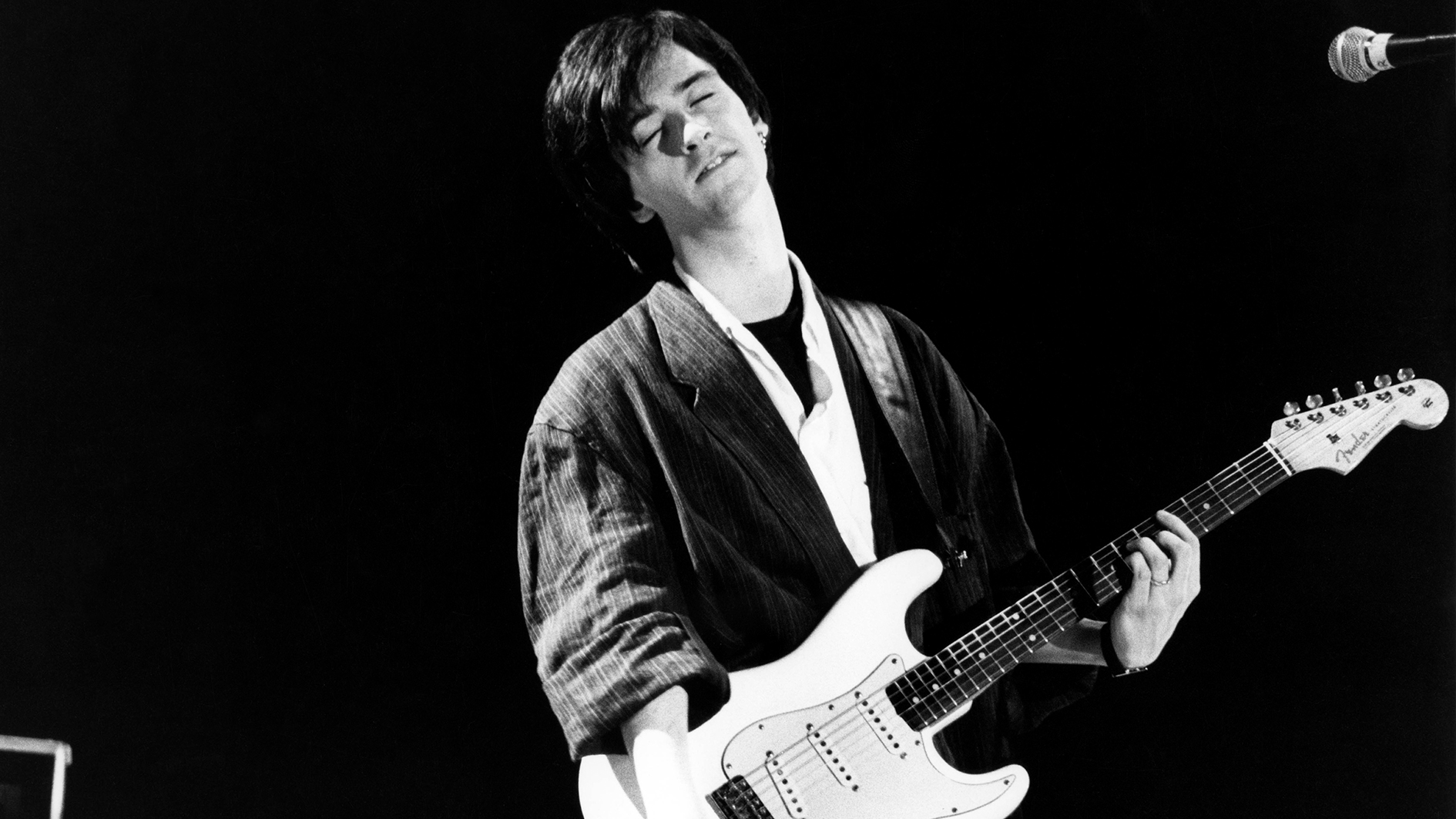


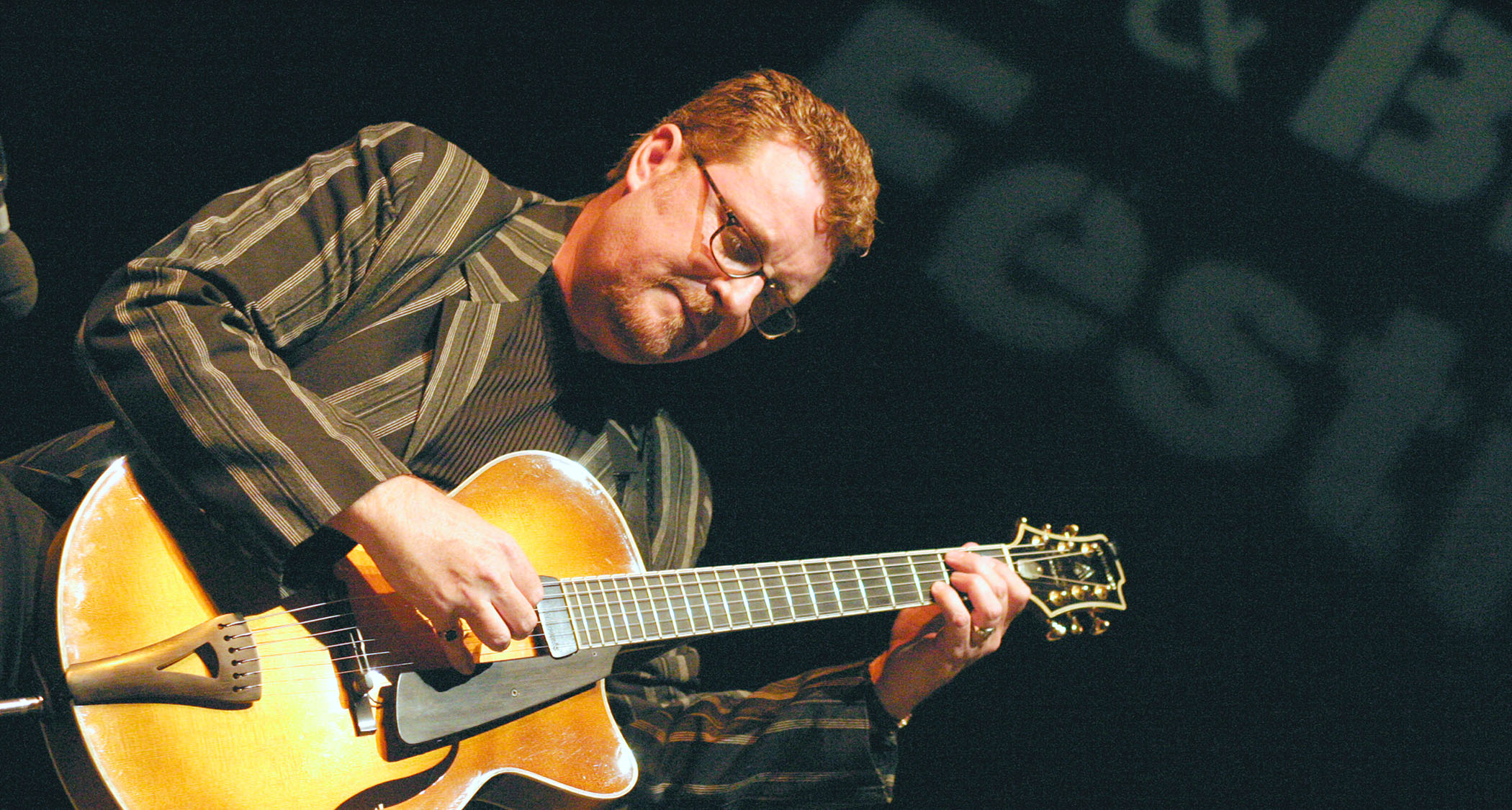



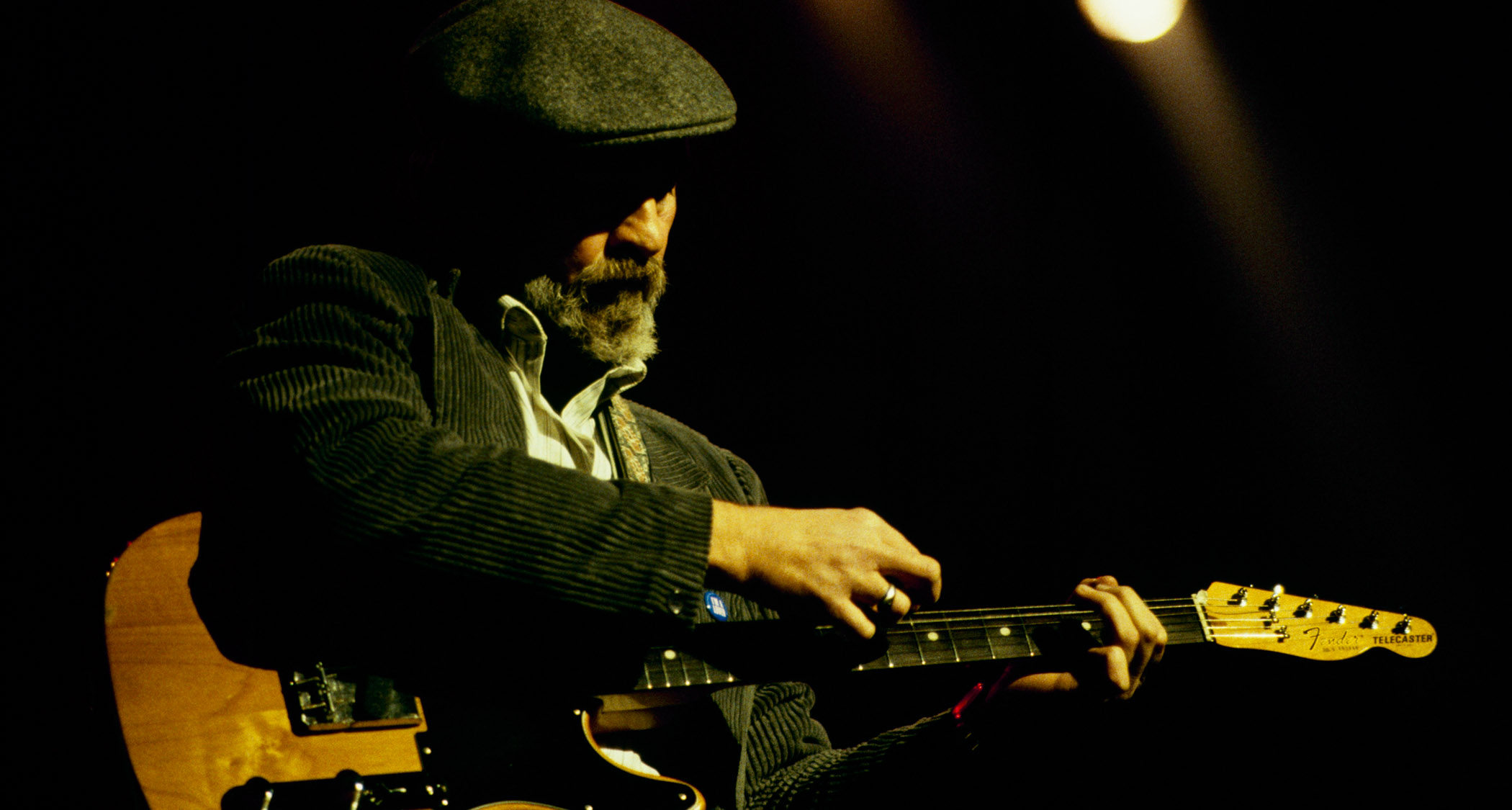
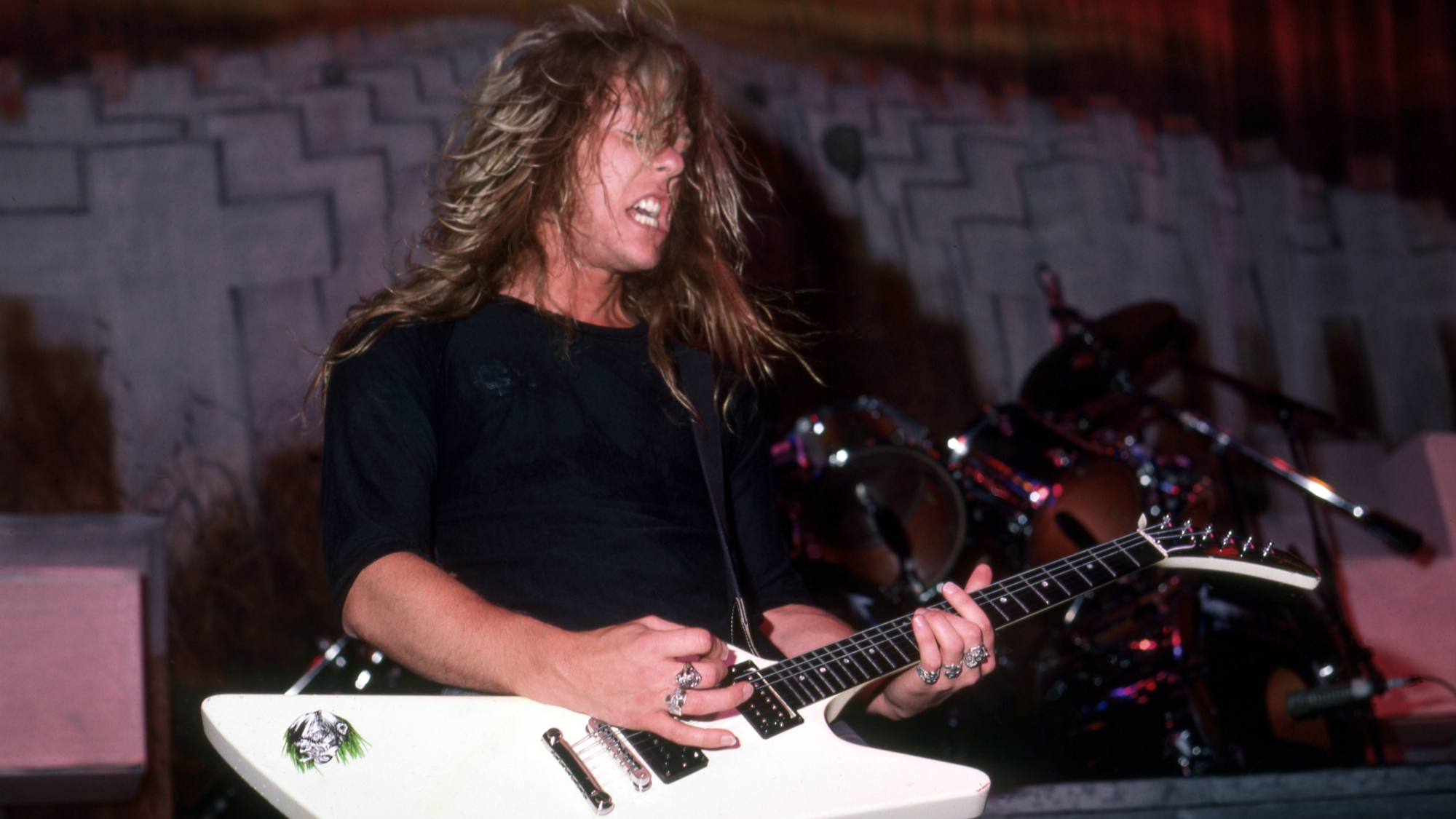
![Joe Bonamassa [left] wears a deep blue suit and polka-dotted shirt and plays his green refin Strat; the late Irish blues legend Rory Gallagher [right] screams and inflicts some punishment on his heavily worn number one Stratocaster.](https://cdn.mos.cms.futurecdn.net/cw28h7UBcTVfTLs7p7eiLe.jpg)
